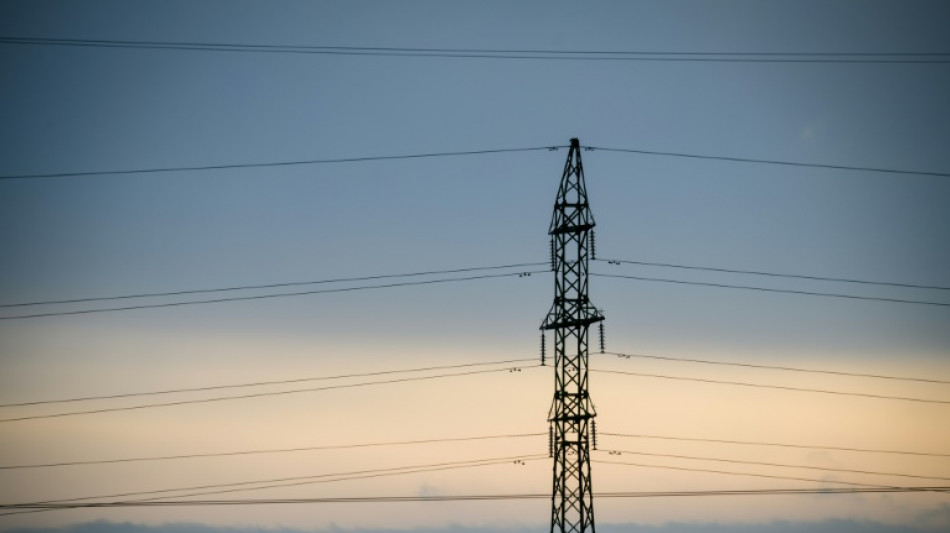
CMSD
0.0400


The Baltic states on Saturday began cutting ties with Russia's power grid in order to integrate with Europe's system, a years-long process that gained urgency with Moscow's invasion of Ukraine.
Estonia, Latvia and Lithuania -- all former Soviet republics now in the European Union and NATO -- are leaving Russia's grid to prevent Moscow from weaponising it against them.
"We are now removing Russia's ability to use the electricity system as a tool of geopolitical blackmail," Lithuania's Energy Minister Zygimantas Vaiciunas told AFP.
EU foreign policy chief Kaja Kallas -- Estonia's former prime minister -- hailed the move on X as "a victory for freedom and European unity".
Lithuania was the first of the three Baltic countries to decouple from the Moscow-controlled electricity network, Lithuania's state-run grid operator Litgrid said Saturday.
"I can confirm that Lithuania's electricity exchange lines with Kaliningrad and Belarus were disconnected at 07:43" local time (0543 GMT), Litgrid spokesman Matas Noreika told AFP.
Estonia and Latvia were due to follow suit by 0700 GMT, he added.
Official celebrations are planned across the Baltics, although some consumers worry about disruptions to supply including from potential cyber-attacks.
Latvia will physically cut a power line to Russia on Saturday and European Commission president Ursula von der Leyen is to attend a ceremony with Baltic leaders in Vilnius on Sunday.
"We are ready," Lithuanian Prime Minister Gintautas Paluckas said on X, calling the weekend "the beginning of a new era of our energy independence".
The Baltics have long prepared to integrate with the European grid but faced technological and financial issues.
The switch became more urgent after Russia invaded Ukraine in 2022, spooking the Baltic states into thinking they could be targeted.
They stopped purchasing Russian gas and electricity after the invasion but their power grids remained connected to Russia and Belarus, controlled from Moscow.
This left them dependent on Moscow for a stable electricity flow, which is crucial for factories and facilities requiring a reliable power supply.
- 'Possible provocations' -
After the Baltic states disconnect from the Russian grid, they will operate in so-called "isolated mode" for about 24 hours to test their frequency, or power levels.
"We need to carry out some tests to assure Europe that we are a stable energy system," said Rokas Masiulis, head of Litgrid.
"We'll switch power stations on and off, observe how the frequency fluctuates and assess our ability to control it."
The states will then integrate into the European power grid via Poland.
Authorities have warned of potential risks linked to the change.
"Various short-term risks are possible, such as kinetic operations against critical infrastructure, cyber-attacks and disinformation campaigns," Lithuania's state security department told AFP.
Poland's power grid operator PSE said it will use helicopters and drones to patrol the connection with Lithuania.
Latvian President Edgars Rinkevics told LTV1 the countries were "maximally ready" for the switch, but said they could not "rule out possible provocations".
In Estonia, police and volunteer defence corps will man critical electrical infrastructure until the following weekend because of the risk of sabotage.
Several undersea telecom and power cables have been severed in the Baltic Sea in recent months. Some experts and politicians have accused Russia of waging a hybrid war, an allegation Moscow denies.
- 'People won't feel it' -
A total of 1.6 billion euros ($1.7 billion) -- mostly EU funds -- has been invested in the synchronisation project across the Baltic states and Poland.
Lithuanian President Gitanas Nauseda was sure the switch would go smoothly, telling reporters: "People won't feel it, either in terms of their bills or any inconvenience."
Estonia's climate ministry urged everyone to carry on as usual as "the more regular and predictable the behaviour... the easier it is to manage the power grid".
But some consumers worry about power cuts and home improvement stores in Estonia have noted a sharp increase in sales of generators.
After the Baltic decoupling, the energy system in the Russian enclave of Kaliningrad will lose its grid connection to mainland Russia.
Kaliningrad has been building up power generation capacity for years and Kremlin spokesman Dmitry Peskov dismissed all concerns.
Asked about the cut-off last week, he said: "We have taken all measures to ensure the uninterrupted reliable operation of our unified energy system."
N.Wan--ThChM